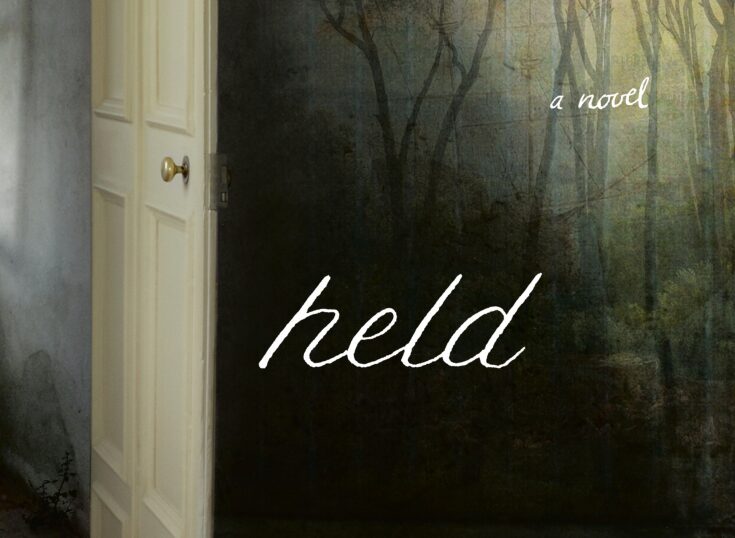
Held
Anne Michaels
Knopf, 2023
Review by Bridget Huh
Anne Michaels’s third novel, Held, is a dizzying marvel of both lyric beauty and structural vision. Equal parts secretive and sincere, Michaels’s latest is ever probing, seeking, as it discovers intimacies that transcend both narrative constraints and time.
Readers familiar with Michaels’s work will recognize themes from her previous novels—history, memory, grief, and loss. In Held, we follow the interconnected lives of four generations as they are drawn closer to and further away from those they love. The novel begins with John lying on a battlefield in France during the First World War; his wife, Helena, a painter, models for another painter after John dies; their daughter Anna works in field hospitals, leaving her husband Peter and her daughter Mara for months at a time; Mara, too, becomes a nurse in a field hospital, distressing her lover Alan, a war journalist; and in the last chapter, set in 2025, another Anna falls in love at first sight.
One of the most moving chapters of the novel follows John, who opens a photography studio after the war. As he takes people’s portraits, he begins to find ghosts emerging in the developed negatives alongside his subjects: a young man’s deceased mother, a widow’s late husband. In true poet’s fashion, Michaels elevates the act of viewing, of witnessing, to the miraculous. John’s “spirit photographs” allow him to feel “everything in his subjects’ faces, their fathomless sorrow and vulnerability as they sat motionless waiting for the light to seize their likeness . . . the tiny buttons of the sitter’s dress, the hands in the lap, the pale skin alive beneath their nervous restraint, every place on their bodies they had been touched or remained untouched, every place neglected, ignored, scorned, forgotten, shamed, adored.” Michaels asks with her characteristic clarity and poignancy, “How can we doubt the existence of what is invisible? How can we conflate invisibility with inexistence?”
Like John, Michaels, too, aims to capture that glint of eternal existence, those ghosts of desire underlying the perambulations of the living. Much of the novel takes the form of carefully wrought vignettes, arresting in their tenderness and beauty. This is a novel that believes in the power of the image, of stillness itself. Rather than forming a singular, continuous narrative, disparate and fragmentary moments are held together by resonances that endure through time. Michaels writes, “In a long exposure, anyone who moves is invisible, only those who are still are perceivable.” Held itself is a kind of long exposure, seeking that timeless and ineffable presence that holds still, that remains even over the course of four generations.
One is reminded of Barthes’s concept of the punctum from Camera Lucida—that unintended detail of a photograph that pierces a viewer independently of the photograph’s political or cultural setting. After all, “The camera sees more than the naked eye, grasps details that elude our perception”: a ghost, a longing, a wound. In Held, Michaels assembles a stunning array of such images and details, each with the potential to both puncture and enrapture.
Bridget Huh is a queer Korean poet completing her undergraduate studies at Concordia University. Her poetry and criticism have appeared in Arc Poetry Magazine, PRISM International, The Ex-Puritan, and Canthius. She is the winner of the 2023 Vallum Poetry Award, and her debut collection of poetry is forthcoming from Véhicule Press.